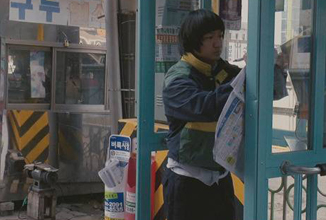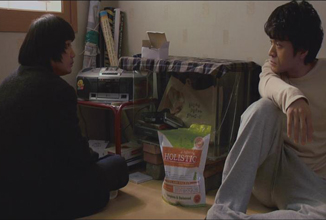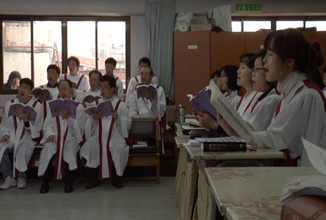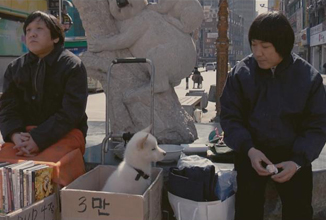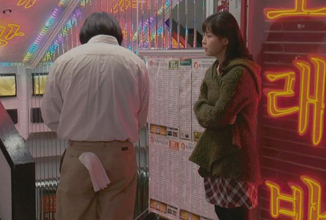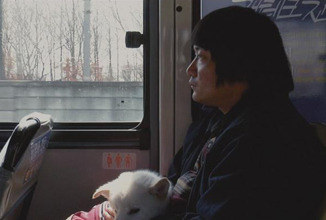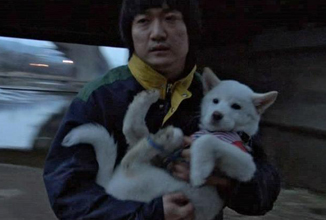
 |
|||||||
Synopsis: Seung-cheol (played by director Park Jung-bum) is a North Korean defector struggling to survive in his new surroundings in the South by taking any and every job he can find, no matter how badly paid or demeaning it may be. His only friend (with whom he shares a tiny, dilapidated apartment) is Kyeong-cheol (Jin Yong-wook) who treats him as little more than a bumbling, inadequate fool and thinks nothing of stealing from shops and charging other North Koreans to send money back home to their relatives, and, in fact, even the policeman (Detective Park, played by Park Young-duk) who is helping them to settle in their new country constantly berates Seung-cheol on an almost daily basis.
Review: Life presents us with challenges. That's what it does, and it is rather good at it. And while some ultimately see the struggle against adversity opening up veiled opportunities leading to an eventual happy ever after, others just never seem to get an even break.
While those he comes into contact with, as well as those he works for (and even the individuals who conflict with him), certainly couldn't be said to care, the fact of the matter is that they're just too busy keeping their own heads (just) above water to have time to concern themselves with the needs of this obvious outsider. Yes, Seung-cheol is consistently exploited and, yes, he does repeatedly fall prey to the fallout from, and consequences of, others' personal agendas, but they too are living hand to mouth and that in itself can't fail to affect the rules of engagement. From a cursory glance, it could be said that Seung-cheol is rather naive and while, considering his background, that's entirely understandable, even here there is a further level to be considered: For, Seung-cheol's biggest problem isn't his lack of awareness but rather his desire to connect and truly become a part of a South Korean society from which he is largely separate and shut off, invariably resulting in him taking people far too readily at face value and thereby making himself an all too easy target, without him even consciously realising it.Add to that the fact that almost everyone's outward persona differs from who, and what, they really are - deliberately so, in an attempt to allow them to, or for them to be deemed to, fit in - and Seung-cheol can consequently be almost guaranteed to get the reality of situations wrong, at virtually every conceivable opportunity. They say nice guys finish last but, in Seung-cheol's case, the question quickly becomes whether he will ever finish at all or even come close to the eventual happy ending he so desperately desires and so truly deserves.
With The Journals of Musan, director Park Jung-bum provides a in-depth character study of his real-life friend Jeon Seung-cheol while detailing the difficulties faced on a daily basis by those (outsiders and South Koreans alike) who find themselves on the very outskirts of society.
Park Jung-bum was assistant director on Lee Chang-dong's Poetry (2010) and the effect of working with the master of subtlety (and of arresting gripping drama from the tiniest of moments) clearly shows throughout The Journals of Musan. While Park Jung-bum is not yet in the same league as Lee Chang-dong (and let's face it, who is?), he is, nonetheless, a talent worth looking out for in the future.
Jeon Seung-cheol sadly died of stomach cancer aged just 30 years old, and The Journals of Musan resolutely stands as a fitting and lasting tribute to a good and gentle man who was never really given a proper chance. Summary: DVD:
Actors: Park Jung-bum, Jin Yong-wook, Kang Eun-jin, Park Young-Duk, Kwon Kwi-deok Directors: Park Jung-bum Short film: "125 Jeon Seung-cheol" (2008) |
|||||||
All images © Art Service Korea Review © Paul Quinn |
|||||||
